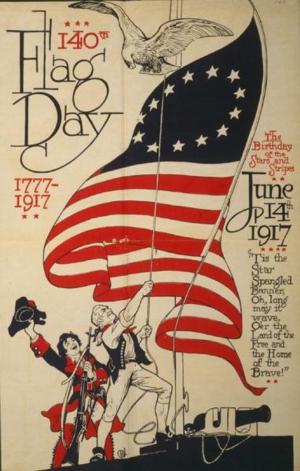Civil Government in the United States Considered With Some Reference to Its Origins
Nonfiction, Religion & Spirituality, New Age, History, Fiction & Literature| Author: | John Fiske | ISBN: | 9781465511447 |
| Publisher: | Library of Alexandria | Publication: | March 8, 2015 |
| Imprint: | Language: | English |
| Author: | John Fiske |
| ISBN: | 9781465511447 |
| Publisher: | Library of Alexandria |
| Publication: | March 8, 2015 |
| Imprint: | |
| Language: | English |
Some time ago, my friends, Messrs. Houghton, Mifflin & Co., requested me to write a small book on Civil Government in the United States, which might be useful as a text-book, and at the same time serviceable and suggestive to the general reader interested in American history. In preparing the book certain points have been kept especially in view, and deserve some mention here. It seemed desirable to adopt a historical method of exposition, not simply describing our political institutions in their present shape, but pointing out their origin, indicating some of the processes through which they have acquired that present shape, and thus keeping before the student's mind the fact that government is perpetually undergoing modifications in adapting itself to new conditions. Inasmuch as such gradual changes in government do not make themselves, but are made by men--and made either for better or for worse--it is obvious that the history of political institutions has serious lessons to teach us. The student should as soon as possible come to understand that every institution is the outgrowth of experiences. One probably gets but little benefit from abstract definitions and axioms concerning the rights of men and the nature of civil society, such as we often find at the beginning of books on government. Metaphysical generalizations are well enough in their place, but to start with such things--as the French philosophers of the eighteenth century were fond of doing--is to get the cart before the horse. It is better to have our story first, and thus find out what government in its concrete reality has been, and is. Then we may finish up with the metaphysics, or do as I have done--leave it for somebody else. I was advised to avoid the extremely systematic, intrusively symmetrical, style of exposition, which is sometimes deemed indispensable in a book of this sort. It was thought that students would be more likely to become interested in the subject if it were treated in the same informal manner into which one naturally falls in giving lectures to young people. I have endeavoured to bear this in mind without sacrificing that lucidity in the arrangement of topics which is always the supreme consideration. For many years I have been in the habit of lecturing on history to college students in different parts of the United States, to young ladies in private schools, and occasionally to the pupils in high and normal schools, and in writing this little book I have imagined an audience of these earnest and intelligent young friends gathered before me. I was especially advised--by my friend, Mr. James MacAlister, superintendent of schools in Philadelphia, for whose judgment I have the highest respect--to make it a little book, less than three hundred pages in length, if possible. Teachers and pupils do not have time enough to deal properly with large treatises. Brevity, therefore, is golden. A concise manual is the desideratum, touching lightly upon the various points, bringing out their relationships distinctly, and referring to more elaborate treatises, monographs, and documents, for the use of those who wish to pursue the study at greater length
Some time ago, my friends, Messrs. Houghton, Mifflin & Co., requested me to write a small book on Civil Government in the United States, which might be useful as a text-book, and at the same time serviceable and suggestive to the general reader interested in American history. In preparing the book certain points have been kept especially in view, and deserve some mention here. It seemed desirable to adopt a historical method of exposition, not simply describing our political institutions in their present shape, but pointing out their origin, indicating some of the processes through which they have acquired that present shape, and thus keeping before the student's mind the fact that government is perpetually undergoing modifications in adapting itself to new conditions. Inasmuch as such gradual changes in government do not make themselves, but are made by men--and made either for better or for worse--it is obvious that the history of political institutions has serious lessons to teach us. The student should as soon as possible come to understand that every institution is the outgrowth of experiences. One probably gets but little benefit from abstract definitions and axioms concerning the rights of men and the nature of civil society, such as we often find at the beginning of books on government. Metaphysical generalizations are well enough in their place, but to start with such things--as the French philosophers of the eighteenth century were fond of doing--is to get the cart before the horse. It is better to have our story first, and thus find out what government in its concrete reality has been, and is. Then we may finish up with the metaphysics, or do as I have done--leave it for somebody else. I was advised to avoid the extremely systematic, intrusively symmetrical, style of exposition, which is sometimes deemed indispensable in a book of this sort. It was thought that students would be more likely to become interested in the subject if it were treated in the same informal manner into which one naturally falls in giving lectures to young people. I have endeavoured to bear this in mind without sacrificing that lucidity in the arrangement of topics which is always the supreme consideration. For many years I have been in the habit of lecturing on history to college students in different parts of the United States, to young ladies in private schools, and occasionally to the pupils in high and normal schools, and in writing this little book I have imagined an audience of these earnest and intelligent young friends gathered before me. I was especially advised--by my friend, Mr. James MacAlister, superintendent of schools in Philadelphia, for whose judgment I have the highest respect--to make it a little book, less than three hundred pages in length, if possible. Teachers and pupils do not have time enough to deal properly with large treatises. Brevity, therefore, is golden. A concise manual is the desideratum, touching lightly upon the various points, bringing out their relationships distinctly, and referring to more elaborate treatises, monographs, and documents, for the use of those who wish to pursue the study at greater length















